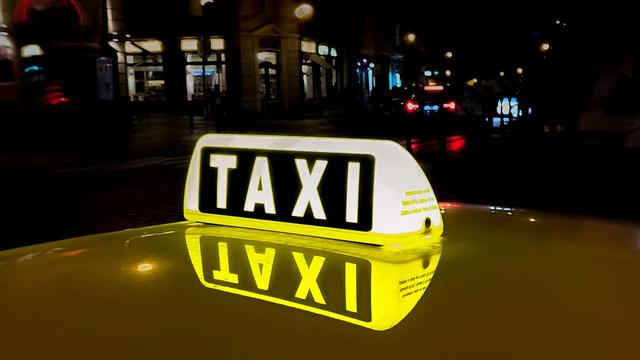Uber and Taxi Drivers Continue to Battle it Out in Mississauga
Published May 20, 2019 at 1:52 am

Controversies regarding the presence of ride-sharing services in Mississauga continue to swirl as both Uber and taxi drivers vie for fairness in a city adjusting to a new driver-for-hire landscape.
It’s no secret that the taxi industry has campaigned to have ride-sharing companies banned, saying that the competition is destroying their industry. Recently, cab drivers demanded tens of thousands of dollars in compensation from the city for allowing ride-sharing companies to operate.
Since about 2012, services such as Uber (and now Lyft) have provided an additional means of getting around Mississauga, but at the same time have negatively impacted the taxi industry. Recently, a series of public meetings were conducted between taxi and Transporation Network Company (TNC) drivers in Mississauga to gauge feedback on how each side feels about the way the city has handled having ride-sharing services.
From late November to early December, 26 taxi drivers and 75 taxi owners attended the public info sessions at the Malton and Burnhamthorpe Community Centres. In contrast, only one driver showed up at both the scheduled meeting for TNC drivers and no one showed up for another meeting for limo owners and drivers.
This past week, a report was presented to councillors on what was heard from those public meetings. Here is some of that feedback:
What Taxi Drivers are saying:
-
Taxi drivers believe there should be a cap on the number of TNC vehicles allowed to operate, saying that there were now more than 17,000 Uber drivers in Mississauga compared to just 705 taxi drivers.
-
They wanted to see consumer protections in place, saying Uber drivers can resell their vehicles for a higher amount than taxis. They needed to disclose that the car was used as a ride-sharing vehicle.
-
Uber drivers don’t make enough money to be sustainable. One owner said taxi drivers make 90 cents/km; it costs 50 cents to run the car. Uber takes 20 so they are making 20 cents a km to drive.
-
A view that there is unfair competition, with taxi drivers having more stringent regulations and costs, whereas Uber’s own regulations aren’t even followed (one example was a taxi driver saying he drives for Uber; he made up his information and was accepted).
-
A number of dramatic comments from taxi drivers implied a very bleak scenario for their futures and livelihoods. Comments such as “you spend your entire life working in an honourable profession and now it is in ruins,” “I will sell my house and jump off the CN tower,” “it would have been better not to immigrate from Lebanon; though there was civil war the chances would have been better” and feelings of “betrayal” as taxi drivers played by the rules and now they feel “abandoned”.
There were also rather direct comments about how the city has handled this matter:
-
Some said councillors have no idea of how small businesses operate (and the inherent risks they run) and are making decisions with little insight as to the intended and unintended impacts.
-
“The city misled and lied to us”
-
“The city threw us under the bus for the profit of a foreign company.”
-
Drivers should sue the city for compensation since they didn’t live up to their end of the agreement.
Other comments delved into areas of pricing, license plates, insurance and passenger/driver safety. Overall, there is a widely accepted perception amongst the taxi drivers that there are double standards for their industry in comparison for those who drive for TNCs and that the same rules should apply for both.
What TNC/Uber Drivers are saying
With only one Uber driver attending the meetings scheduled for TNC drivers and no industry stakeholders attending at all, the following comments were gleaned from a one-on-one session with the attending TNC driver.
-
“I’ve been an Uber driver since January 2018 and I love it, it is a good pastime”
-
She never felt unsafe, saying not taking cash and not taking hails for rides was an advantage as an Uber driver.
-
The driver saw positives and negatives on the aspects of the Uber app. There is a new 911 button, but the GPS is unreliable and she didn’t like the function of the express pool because clients are not in the right place.
-
She also wished the app would sort drivers by gender, so she would pick up more women passengers than male passengers.
-
This Uber driver actually was upset that she was making less money, saying she initially made $1,600 per week; now it’s down to $800 per week. And reaching Uber themselves was difficult.
From the attendance during the meetings between the two sides, it’s clear that the issue of ridesharing in Mississauga is more important to taxi drivers and owners than for Uber drivers. Maybe there really is not enough work for taxi operators that they have the time to attend said meetings.
And from those meetings as documented from the notes in the report, it’s clear that there are literally two realities at play for taxi drivers and Uber drivers, even though it was literally only one person representing the latter. While the Uber person spoke mostly about positives and minor inconveniences of her use of the app, in contrast the image you get from taxi drivers is that their entire world has collapsed around them (which in some areas is probably true), but it seems that other than that this problems is strictly affecting only people who happen to drive taxis.
Putting aside the doom and gloom scenarios, the immediate issue to address for both TNC and taxi drivers is having the same framework of rules and regulations, such as training and insurance. Having both alternatives of getting around in Mississauga would not hurt in this still car-centric, heavily populated city.
insauga's Editorial Standards and Policies advertising





